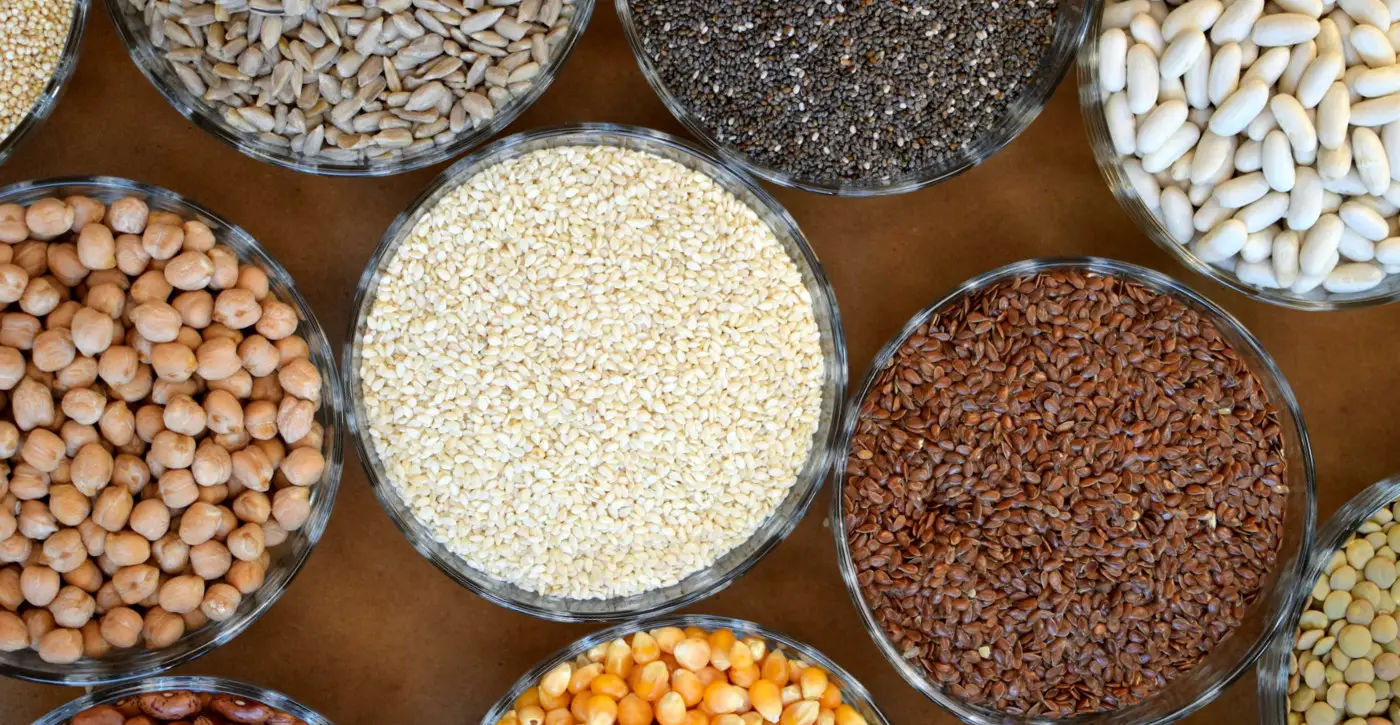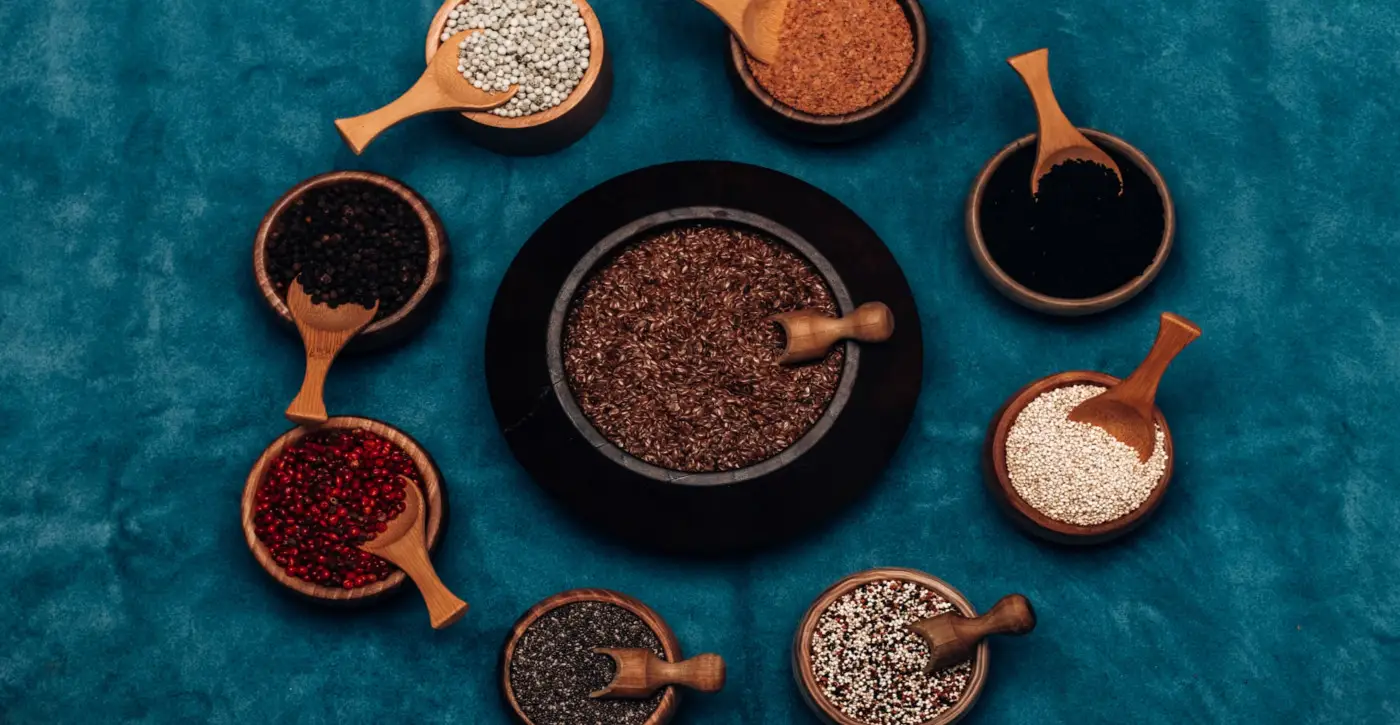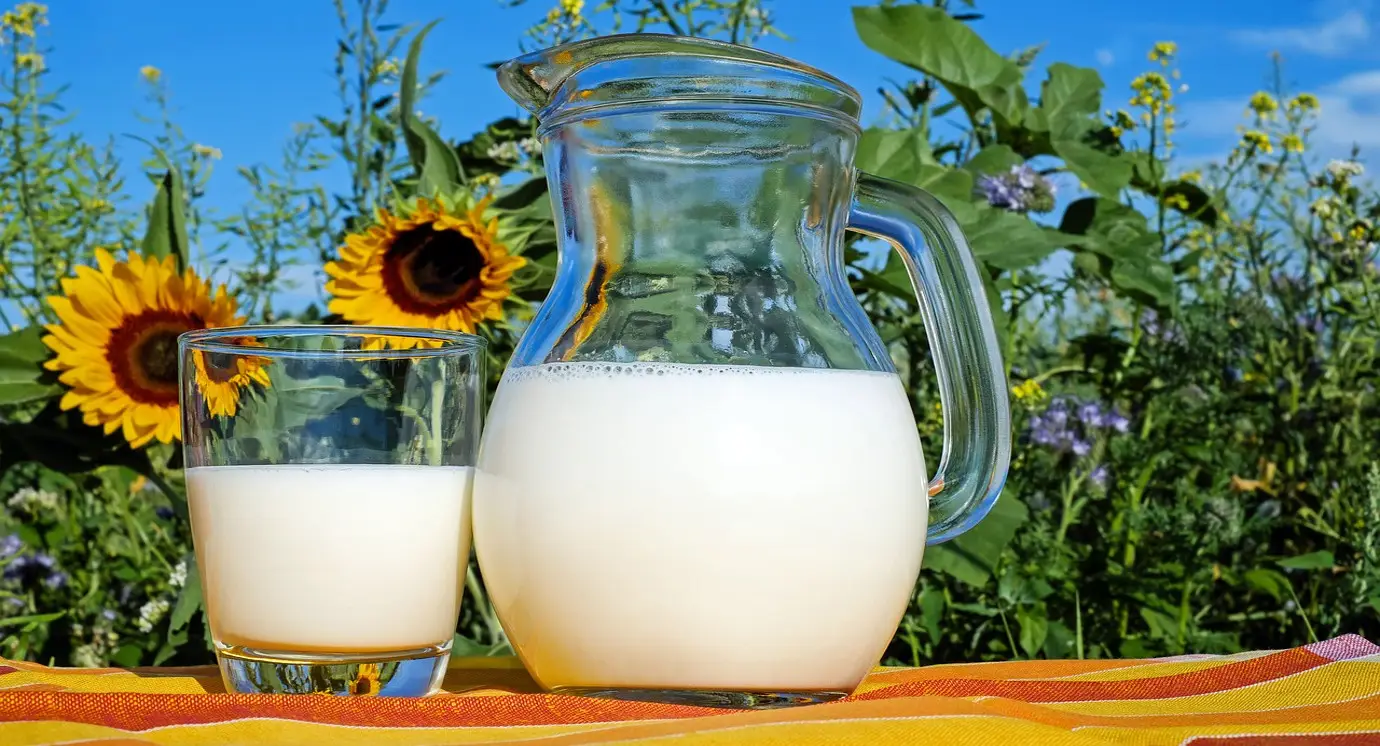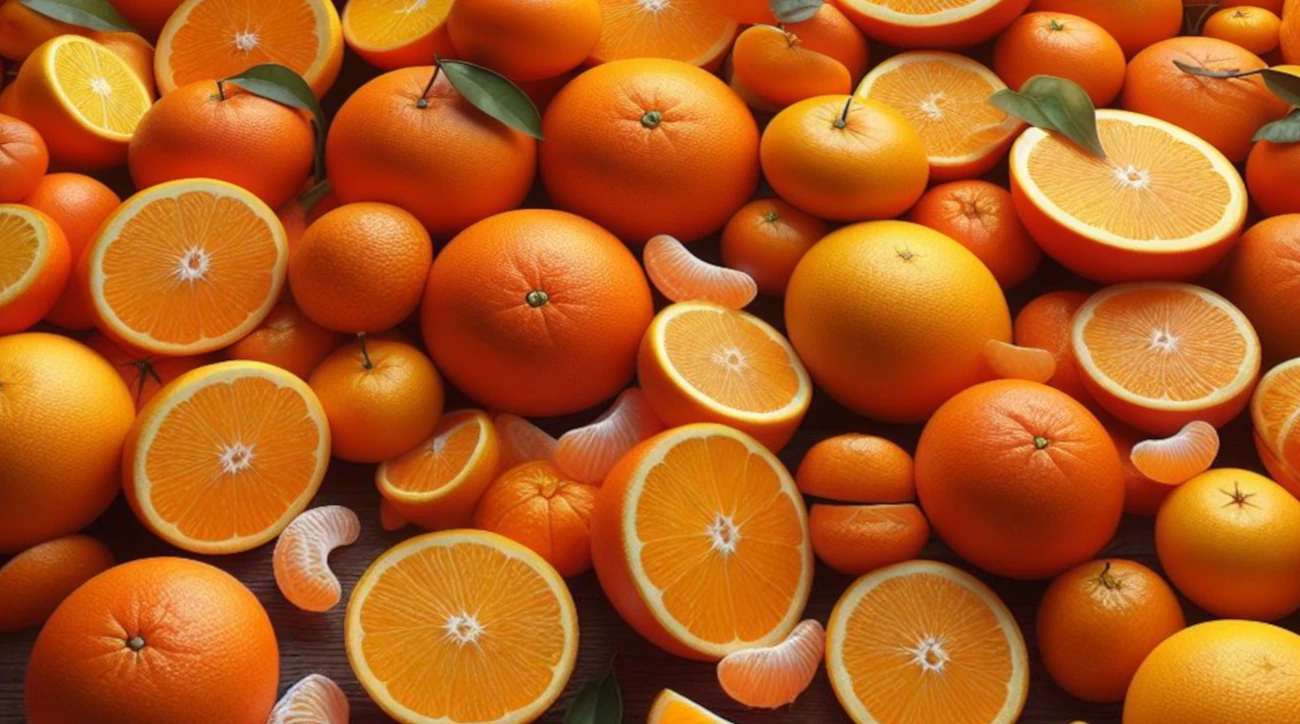Millet Lysine and Arginine Info Sheet
Overview
Millet is a type of grain that is often overlooked in favor of other grains like wheat or rice, but it is a versatile and nutritious addition to any diet.Millet is gluten-free and packed with vitamins and minerals. It is also a good source of fiber and antioxidants.
| Name | Lysine (mg/100g) | Arginine (mg/100g) | Ratio |
|---|---|---|---|
| Millet | 210mg | 382mg | 0.55 |
Millet contains 210mg of Lysine and 382mg of Arginine per 100g of product.
This means Millet has a low Lysine-Arginine ratio of 0.55.
Because Millet contains slightly more arginine than lysine, reducing its consumption may help people who suffer from herpes, as it may lower the viral activity.
Lysine Considerations
Millet provides a decent amount of lysine. Consuming foods rich in lysine can potentially help manage HSV due to lysine’s inhibitory effect on the virus.
Lysine can help prevent or treat cold sores, which are blisters caused by the virus HSV-1, also known as herpes.
Lysine works by blocking the growth of HSV-1, which needs another amino acid called arginine to multiply and infect cells.
Lysine can only be obtained through diet, and can be found in multiple high-protein foods like dairy products, fish, eggs, meat and poultry.
Arginine Considerations
Millet is a good source of arginine, which is known to promote the replication of HSV.
Therefore, a diet high in arginine may trigger HSV outbreaks in some individuals.
Arginine can improve your wellbeing and performance, such as lowering your blood pressure, healing your wounds, and boosting your exercise endurance.
Arginine can be made by your body or obtained from foods like meat, dairy, nuts, and soy.
Unfortunately, the herpes virus is known to "feed" on arginine, and having a diet higher in arginine than lysine may increase the occurrence and severity of cold sores and herpes outbreaks.
Lysine-Arginine Ratio
The lysine to arginine ratio in millet is balanced, making it a good choice for those who need to manage these amino acids in their diet.
However, individuals with HSV may need to monitor their intake due to the balanced lysine-arginine ratio.
Both lysine and arginine are important for protein synthesis and other bodily functions.
The two compounds can affect the herpes simplex virus, which is responsible for cold sores and genital herpes, in opposite ways.
Lysine can the human system or stop the virus from reproducing, while arginine can help it propagate.
Eating foods with a high lysine-arginine ratio could help lower the appearance and severity of herpes flare ups.
Some foods that have a high lysine-arginine ratio are dairy products, fish, poultry, fruits, and vegetables.
These foods can give the body enough lysine to prevent the virus from taking up arginine, and thus stop its growth and spread.
Dietary Considerations
Grains are generally not very high in lysine and rich in in arginine, which makes them less beneficial for people with herpes.
That said, some grains are better than others in terms of their lysine to arginine ratio.
Quinoa, amaranth, buckwheat, and seitan are some of the grains that have more lysine than arginine, or at least a balanced ratio.
These grains can be included in a healthy diet, as they also provide fiber, iron, and antioxidants.

For example:
A diverse and nutritious diet that supports your immune system and fights inflammation is essential.
This means you should eat lots of fruits, vegetables, whole grains, lean protein, and healthy fats, and steer clear of processed foods, added sugars, alcohol, and caffeine, which can harm your health.
Drinking enough water to keep yourself hydrated and remove toxins from your body.
Water can also help prevent dryness and irritation of the skin and mucous membranes, which can result in fewer outbreaks.
Consider taking l-lysine supplements, which can help prevent herpes outbreaks and stop a cold sore before it emerges by limiting the availability of arginine for the virus, which it requires to produce a cold sore.
Avoiding foods that can cause allergic reactions or sensitivities, such as gluten, dairy, nuts, eggs, or shellfish.
These foods can trigger inflammation and weaken your immune system, making you more susceptible to outbreaks.
Eating foods that can soothe your symptoms and speed up your healing process, such as honey, yogurt, aloe vera, and chamomile.
These foods have anti-inflammatory, antiviral, and antibacterial properties that can reduce pain, swelling, and itching, and promote tissue repair.
Check more food information






